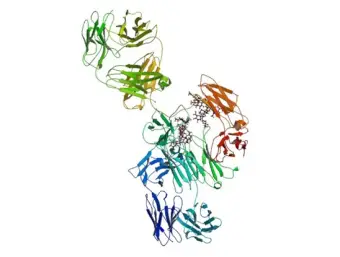Mertansine API Manufacturers & Suppliers
Find, compare & contact
Filters
Custom request?
Type
Production region
Qualifications
Country of origin
Producer
Produced in:
Established in: 2019
MOQ: 1 kg
Employees: 10+

Focused on pharmaceutical industry

Reasonable price for the customers

Full service from R&D stage to commercial stage
+ 0
All certificates
How does it work?
You can register for free as long as you are registering on behalf of a legal company related to the pharmaceutical industry
Search in the search bar the product that you’re looking for. We’ll show you an overview of all available suppliers. Use the filters to select the relevant suppliers only
Have you found interesting suppliers? Then it’s time to contact them. Use the send inquiry button and send them a message. You can send for each product, 3 inquiries per week
Suppliers get notified by Pharmaoffer that they’ve received a new inquiry. They will come back to you with their questions, certificates, and offer in the chat on Pharmaoffer. We will send you an email in case of any news
Does the supplier meet your quality and commercial requirements? Then you can place the order. Just follow the steps of our order module
Looking for Mertansine API 139504-50-0?
- Description:
- Here you will find a list of producers, manufacturers and distributors of Mertansine. You can filter on certificates such as GMP, FDA, CEP, Written Confirmation and more. Send inquiries for free and get in direct contact with the supplier of your choice.
- API | Excipient name:
- Mertansine
- Synonyms:
- DM-1 , Mertansine (DM1) , maytansinoid DM1
- Cas Number:
- 139504-50-0
- Unique Ingredient Identifier:
- DDZ29HGH0E
Mertansine is a type of Oncolytics
Oncolytics, as a subcategory of pharmaceutical active pharmaceutical ingredients (APIs), refers to compounds specifically designed to combat cancer cells. These powerful substances play a crucial role in the development of targeted cancer therapies. Oncolytic APIs are engineered to selectively target and destroy cancer cells while sparing healthy cells, minimizing potential side effects.
The efficacy of oncolytic APIs lies in their ability to disrupt cancer cell growth and induce cell death through various mechanisms. These APIs can directly target specific molecular pathways or receptors that are overexpressed or mutated in cancer cells, inhibiting their growth and proliferation. Additionally, oncolytic APIs can stimulate the immune system to recognize and eliminate cancer cells, harnessing the body's natural defenses against cancer.
The development of oncolytic APIs involves rigorous research and testing to ensure safety and efficacy. Pharmaceutical companies employ advanced technologies and methods to synthesize and optimize these compounds. They undergo preclinical and clinical trials to evaluate their therapeutic potential, dosing, and side effects.
Oncolytic APIs offer great promise in the field of cancer treatment, providing novel therapeutic options for patients. By precisely targeting cancer cells, they have the potential to enhance treatment outcomes and improve patient survival rates. Ongoing research and development in oncolytics continue to expand our understanding of cancer biology and revolutionize cancer treatment strategies.
Mertansine (Oncolytics), classified under Anticancer drugs
Anticancer drugs belong to the pharmaceutical API (Active Pharmaceutical Ingredient) category designed specifically to combat cancer cells. These powerful medications play a crucial role in cancer treatment and are developed to target and destroy cancerous cells, preventing their growth and spread.
Anticancer drugs are classified based on their mode of action and can include various types such as chemotherapy drugs, targeted therapy drugs, immunotherapy drugs, and hormonal therapy drugs. Chemotherapy drugs work by interfering with the cell division process, thereby inhibiting the growth of cancer cells. Targeted therapy drugs, on the other hand, are designed to attack specific molecules or genes involved in cancer growth, minimizing damage to healthy cells. Immunotherapy drugs stimulate the body's immune system to recognize and destroy cancer cells. Hormonal therapy drugs are used in cancers that are hormone-dependent, such as breast or prostate cancer, to block the hormones that fuel cancer cell growth.
These APIs are typically synthesized through complex chemical processes in state-of-the-art manufacturing facilities. Stringent quality control measures ensure the purity, potency, and safety of these drugs. Anticancer APIs undergo rigorous testing and adhere to stringent regulatory guidelines before being approved for clinical use.
Due to their critical role in cancer treatment, anticancer drugs are in high demand worldwide. Researchers and pharmaceutical companies continually strive to develop new and more effective APIs in this category to enhance treatment outcomes and minimize side effects. The ongoing advancements in the field of anticancer drug development offer hope for improved cancer therapies and better patient outcomes.
Mertansine manufacturers | traders | suppliers
We have 1 companies offering Mertansine produced in 0 different countries.
Get in contact with the supplier of your choice:
- Apino Pharma Co., Ltd. from China, product country of origin China
Let the supplier know whether you are looking for a product with a specific monograph such as EP (Ph. Eur.), USP, JP, BP or another quality. Or, whether you are looking for hydrochloride (HCl), anhydricum, base, micronisatum or a specific purity.
You can use the filters to find high-quality suppliers. For example, you can select GMP, FDA or ISO certified suppliers. Visit our FAQ page or use the chat box in the corner to get more information about Pharmaoffer.









